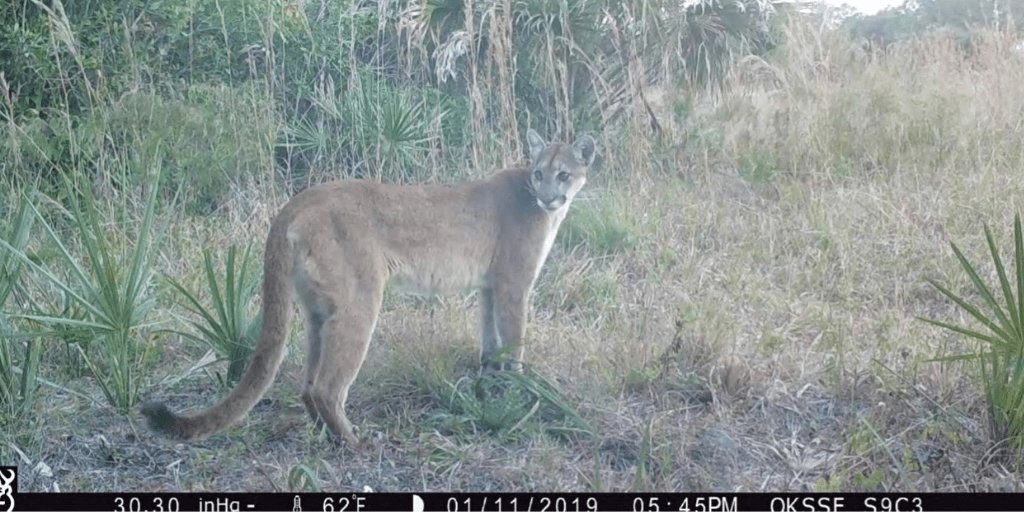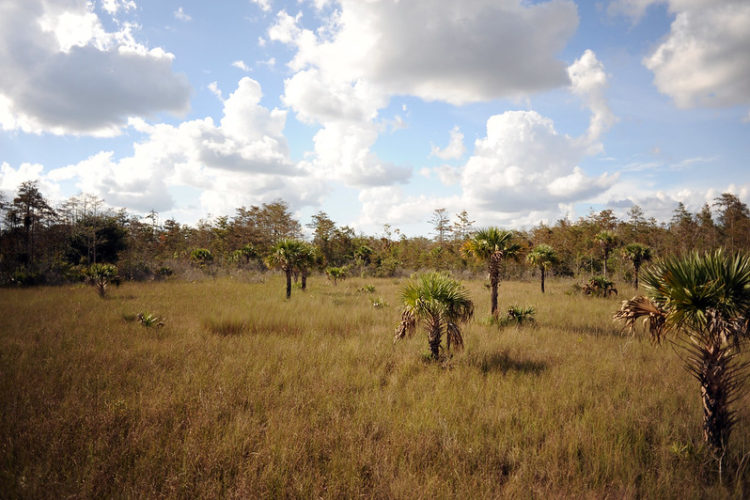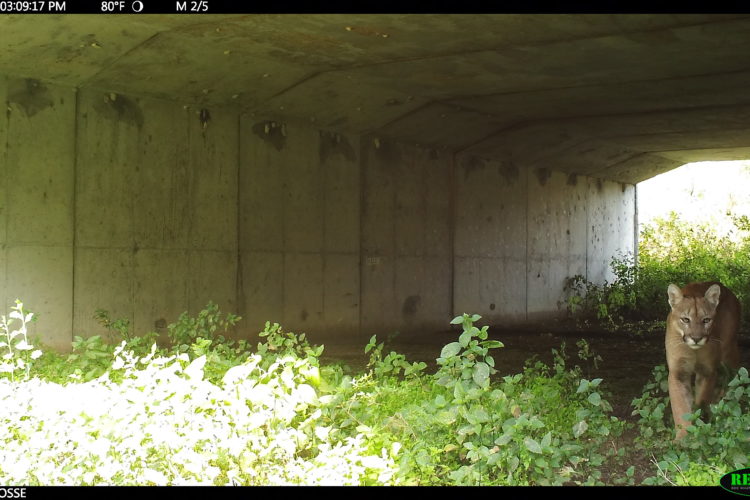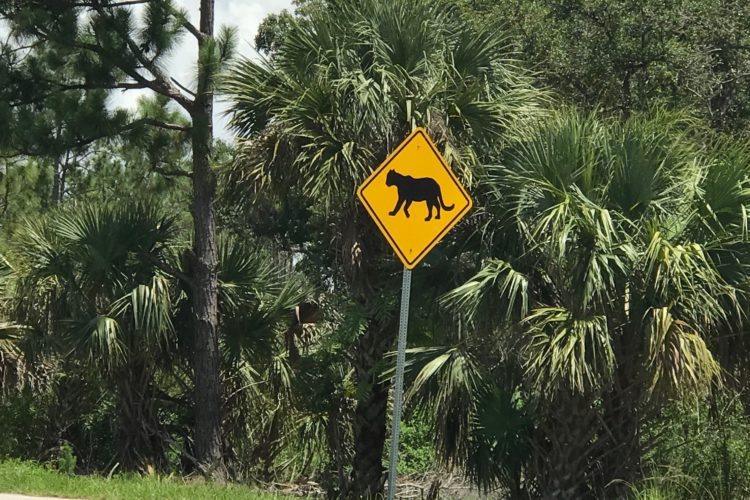We have much more to do and your continued support is needed now more than ever.
The Road to Nowhere is Paved Through Florida’s Treasured Wilderness

The beauty of old Florida is unparalleled with lush grasslands, whimsical cypress forests, and the crystal waters of the Everglades. These wild landscapes not only serve to remind us of Florida’s natural beauty, but are also vital in protecting Florida’s drinking water sources and storing floodwaters. Beyond that, these swamps, marshes, and meadows are also among the most productive ecosystems in the world and support a wide variety of plant and animal species, including the iconic Florida panther.
But, Florida’s magnificent wilderness is under constant threat: wetlands are being drained to make way for urban development, native plant and animal species are being displaced or destroyed, and roads continue to fragment this beautiful state.

Following this destructive trend, the state of Florida signed the Multi-Use Corridors of Regional Economic Significance (M-CORES) into law in 2019; this requires the state to build three toll roads totaling 330 miles through both Florida’s most natural lands and important rural communities. The most southern portion of these roads will cut directly through the last remaining areas identified as core breeding habitat for the endangered Florida panther.
The Florida panther is Florida’s official state animal and it has been listed as a federally endangered subspecies since 1967. Historically, the Florida panther roamed across the southeastern portion of the United States—all the way from Florida to Louisiana throughout the Gulf Coast states and Arkansas. Today, the breeding population of Florida panthers is almost completely restricted to just the southwestern tip of Florida.

These beautiful animals have already been extirpated from much of their home range, and additional roadways will only cause further damage.
Roads are also the leading cause of death for panthers, and adding 130 miles of roadways through their remaining habitat not only puts Florida panthers at even greater risk of being hit and killed, but will undoubtedly undermine the decades of conservation efforts put forth in recovering this endangered species. Of the 27 endangered Florida panthers that died last year, 23 were killed in collisions with vehicles.
Backward Process
Typically, the Florida Department of Transportation (FDOT) is responsible for planning improvements and construction of Florida roads. M-CORES, however, was introduced by lawmakers and therefore was not included in any of the major FDOT transportation plans. This is a backward process and an inappropriate approach to transportation planning. There are infrastructure needs on existing roads across the state that have long been included in FDOT’s transportation plans. These actual needs are being sidelined to focus on the whim of lawmakers who decided there is a need for 330 miles of toll roads. These are not needs as identified by transportation planners and experts, and will only serve to damage our economic and ecologic well-being.
Bad idea that just won’t go away
Florida already has more toll roads than any other state and several of these existing toll roads do not actually attract a sufficient number of drivers to support the economic impact of these roads. There is no evidence to support that the proposed toll roads will be any more economically viable.
A similar project to one of the toll road corridors was proposed – and rejected – in 2007. It was known as the Heartland Parkway. It was rejected because there was no need, and the proposed toll road did not meet the statutory requirements to qualify as a toll road based on insufficient revenue projections. In fact, the Heartland Parkway was projected to be 83% unfunded based on toll revenue. The economics on this current road will be equally dreadful. Without a single study demonstrating that these roads are needed or that they will be a worthy investment, the planning effort for the three proposed toll roads has already been appropriated $135 million for the next 2 years. Lawmakers are spending our tax dollars frivolously on unnecessary projects rather than directing our limited financial resources toward documented and real infrastructure and environmental needs.
Environmental Impact
These unnecessary road projects will cut through Florida’s wilderness. They will cause irreparable damage to Florida’s natural resources and inhibit much-needed water quality improvements. Roads are dams, and they completely alter hydrology. The state has finally begun to prioritize water quality needs. In fact, as a part of the Comprehensive Everglades Restoration Project, the state is spending billions of taxpayer dollars to remove roads in order to restore historic water-flow. These new toll roads are counter-intuitive to the State’s long term investments in restoring water quality.

Additionally, the footprint of the toll roads themselves will destroy thousands of acres of undeveloped land, and it will certainly incentivize sprawling development- both residential and commercial. Increased sprawl will lead to increased water consumption, less land available for water recharge and additional pollution from runoff into our rivers, springs and remaining wetlands.
The hundreds of miles of roads will also hinder (and possibly even prevent) recovery of the endangered Florida panther, which has been a state and national focus for decades. All of the regions identified as core breeding habitat for the Florida panther are set to be impacted by the toll road project. Roadways are lethal barriers to wildlife and wildlife movement. Roads significantly contribute to habitat loss and fragmentation. This is the greatest threat to establishing and maintaining sustainable populations of the Florida panther, which is critical for the recovery of the species. Also, vehicle strikes on roads are actually the leading cause of death for panthers. In just the first month and half of 2020, there have already been 8 panthers hit and killed by cars on Florida’s roadways.
Help Us Keep the Wild in Florida
The 330 miles of roads associated with M-CORES will be catastrophic for all wildlife and a major step backward on Florida’s path for clean water. M-CORES is prioritizing the wants of lawmakers over the conservation of Florida’s most valuable natural resources. We must not allow the wants of a few to destroy Florida’s natural, wild beauty for all.
If you are a Florida resident, please join us in speaking up for Florida panthers.
Take Action!

The Florida Wildlife Federation has long been on the frontline of advocating for the health and welfare of Florida’s native fish and wildlife. FWF’s work for Florida panthers includes supporting research, habitat conservation and planning, community outreach and advocacy work. You can check out their ongoing projects, such as camera traps tracking panther movements by following them on social @FlWildFed.





















